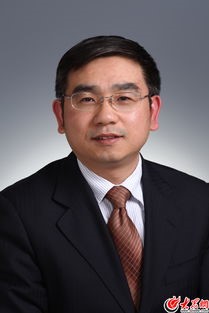1. What are the distinguishing features of your organization?
The Trilateral Cooperation Studies Center (TCSC) of Shandong University is a research institution established with the approval of the Ministry of Foreign Affairs of the People's Republic of China (MFA, PRC) on November 8, 2014. It aims to integrate the university's outstanding academic resources related to the trilateral cooperation between China, Japan and the ROK, and strengthen research on the politics, economy, society, and culture of East Asia, as well as the trilateral relationship, exchange, and cooperation. Its goal is to further regional development and offer advice and suggestions for expanding and deepening all-round cooperation between China, Japan, and the ROK.
Shandong University provides an outstanding academic foundation for studies related to the trilateral cooperation. Based on its geographical characteristics, Shandong University has long attached great importance to research related to Japanese and Korean politics, economy, and culture, as well as various sectors in China, Japan, and the ROK. With abundant achievements, it has developed into an important platform for studies related to the ROK and Japan, laying a profound and extensive academic foundation for studies related to the trilateral cooperation. The School of Foreign Languages and Literature of Shandong University has outstanding strength in developing Korean and Japanese language and culture as disciplines, and is equipped with an academic team characterized by appropriate structure, rigorous scholarship, and high academic level. Its excellent language teaching and research provide solid disciplinary support and an intellectual guarantee for the trilateral cooperation.
2. What kinds of researches related to the three countries have been conducted in your organization? Please introduce your previous and current research.
Since its establishment, the Trilateral Cooperation Studies Center of Shandong University has made great progresses:
● Established the Trilateral Cooperation Database; constantly collected the latest information on the trilateral cooperation from the three countries and English-speaking countries/regions, and selected important information to translate; and provided timely information for researchers to analyze and study the trilateral cooperation from multiple perspectives;
● Translated the Trilateral Cooperation Whitepaper 2013 issued by MFA, PRC, from Chinese to Japanese and Korean;
● Set up a website and a WeChat official account for the Center to continue updating the Trilateral Cooperation Database;
● Published important information about the trilateral cooperation activities and published articles written by the Center's researchers;
● Launched the Distinguished Scholars’ Lecture on Trilateral Cooperation Research and invited more than 10 famous experts engaged in the trilateral cooperation to the lecture, broadening the vision of teachers and students, and improving the research capability;
● Actively developed cooperation projects, established a long-term cooperation mechanism with Japanese and Korean research institutions, cooperated with Japanese and Korean research institutions to co-host the international academic seminar “The Focus and Prospect of East Asian Language and Cultural Exchange”, and signed cooperation agreements with Korean research institutions involved;
● Actively applied for research projects; had two international cooperation projects approved; and accomplished much in translator/interpreter training, Chinese traditional foreign relations, trilateral comparative literature, and trilateral mutual understanding.
As an important member of the network of trilateral cooperation think-tanks (NTCT), the Trilateral Cooperation Studies Center of Shandong University will, based on the new trends of the Belt and Road initiative and China–ROK Free Trade Area strategy, and in a diverse, open, collaborative, and sharing manner, strengthen the research on Northeast Asian hotspot topics and build the Trilateral Cooperation Newsletter Database into a representative database for the trilateral cooperation research. The Center will also continuously develop ties with relevant domestic and foreign think tanks, and gradually establish a long-term and stable exchange and cooperation mechanism to improve the internationalization level. To better play the role of think-tank, it actively provides its research outcomes and advisory reports to relevant institutions.
Website: www.tcsc.sdu.edu.cn
WeChat official account: tcsc-sdu
3. What is your future prospect for the trilateral cooperation and what kind of research should be done to that end? Also, what kind of role the Trilateral Cooperation Secretariat (TCS) can play for this purpose?
We hope that China, Japan, and the ROK will live in harmony and further strengthen exchanges among all walks of life, including youth, social organizations, local governments, and the media, to improve the living of the people and invigorate regional development and cooperation.
We believe that it is prerequisite to realize people-to-people bonds in order to achieve smooth exchanges in all sectors including the economy, culture, and trade; effectively suppress conflicts and wars; and ensure peaceful and harmonious coexistence among the three countries.
We also hope that the Trilateral Cooperation Secretariat (TCS) will actively promote the development of the NTCT, offer more practical proposals on the trilateral cooperation, facilitate further academic exchanges among the three countries, and boost various forms of cooperation projects such as academic seminars. Shandong University will make full use of its unique strength in literature, history, and philosophy, and carry out relevant academic research to contribute to the cooperation and development of the three countries.
HU Jinyan Vice president of Shandong University. He is also a professor and doctoral tutor at Shandong University. He received his Ph.D. in economics from Shandong University and finished his postdoctoral research in economics at Fudan University. He was a visiting scholar at the University of Queensland, Australia. He is the chief expert for the Key Program of the National Natural Science Foundation of China and also an expert rewarded the State Council Special Allowance. He has been elected as a Young and Middle-Aged Expert with Outstanding Contributions of Shandong Province and a star teacher of Shandong Province. He is also a member of the International Review Expert Committee on Quality of National Undergraduate Education, expert director of the National Teaching Advisory Committee of Finance, vice chairman of the Education Branch of the Chinese Association of Higher Education, executive director of the Financial Conference of China, vice president of the Financial Association of Shandong, deputy director of the Academic Committee of Shandong, member of the Monetary Policy Committee of the People's Bank of China Jinan Branch, special researcher of the Research Office of the People's Government of Shandong Province, and a think-tank expert of Jinan Municipal Committee Policy Research Office. He is mainly engaged in theoretical teaching and research related to financial investment, rural finance, and money and finance. He has published nearly 100 papers in Chinese and international academic journals, such as in the Journal of Comparative Economics, Economic Modeling, and Chinese Journal of Financial Research. He also has published more than 20 academic books and textbooks. |
| |


